#cold war literature
Explore tagged Tumblr posts
Text
If only there had been a little pride left over, a little lust for power, some envy maybe, they could've used it to tempt him out of seclusion, but whatever titanic contests Lancelot's soul had played host to, between greatness and weakness, love and loyalty, lust and purity, they'd apparently left him cool and devoid of any further earthly desires. Nothing left but incorruptible ashes.
Lev Grossman, from The Bright Sword
#lancelot#characterization#i've got a war in my mind#temptation#resist temptation#seclusion#self control#arthurian legend#nothing left#cold fish#quotes#lit#words#excerpts#quote#literature#lev grossman#the bright sword
9 notes
·
View notes
Text
I’m currently working on another longpost which I’m calling The Creation of AM: How the Cold War and the Advent of the Internet influenced I Have No Mouth and I Must Scream. Stay tuned for more to come.
#ihnmaims#wip#work in progress#harlan ellison#AM#i have no mouth and i must scream#literature#analysis#blog stuff#deep dive#character study#cold war#rise of the internet#future post ;)#writings
44 notes
·
View notes
Text
A. I. Ivanov and G. I. Rybkin - The Damaging Effects of the Nuclear Explosion (USSR, 1960)
artist: E. Seleznev

5 notes
·
View notes
Text
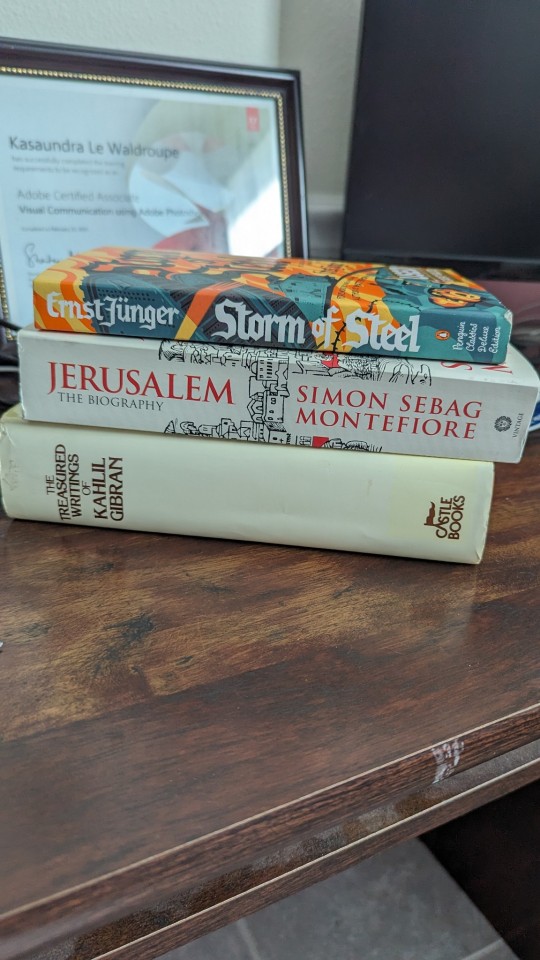


My Peseach book haul 2024 💜
#bookblr#non fiction#non fiction books#classic literature#ernst hemingway#sarah vaughan#chimamanda ngozi adichie#donna tartt#khalil gibran#simon sebag-montefiore#ernst jünger#bret easton ellis#rick bragg#espionage#espionage history#cold war#philosophy#philosophy books#Aristotle#friedrich nietzsche#Jerusalem#Palestine#the romanovs#the goldfinch#anatomy of a scandal#reputation#storm of steel#a farewell to arms#americanah#where i come from
15 notes
·
View notes
Text
This notebook, “The Rainforest Speaks: Reimagining the Malayan Emergency,” gathers writers, translators, filmmakers, artists, historians, and critics to revisit a significant period of Southeast Asian history—the Malayan Emergency. The Emergency, which took place from 1948 to 1960, was a war between British colonial forces and communist fighters mostly based in the Malayan rainforest. The history and analysis of this war—including British initiatives that forcibly resettled half a million people, primarily ethnic Chinese Malayans, into heavily surveilled New Villages, and deported thousands to China—is fragmented and complex. Not only is the history split across different languages such as Malay, Chinese, and English, it is often eclipsed by the British colonial depiction of the fight as an “emergency” incited by communist “terrorists,” instead of an anti-colonial struggle.
The writers featured in “The Rainforest Speaks,” edited by Min Ke (民客), attempt to recover this elusive past and address those not well-represented in the historical record, including the communist guerrilla fighters, rural Chinese Malayans, Indian plantation workers, the indigenous Orang Asli people, and the rainforest itself. The contributors, who Min Ke notes are “all a generation or more removed from the events of the Emergency,” contend with these gaps through original translated stories, essays, criticism, and art. The resulting collection of work resists a singular narrative about the Emergency and instead traces the many perspectives of those involved. “The urge to return to scenes of the Emergency, to look beyond the colonial archive, is not only a painstaking task of recording imperial wrongs that persist in the present,” writes Min Ke in the editor’s note to the notebook. “It is, above all, an imaginative task, one that cannot be captured by an individual or group.”
Each piece in “The Rainforest Speaks” features art by Sim Chi Yin.
19 notes
·
View notes
Text
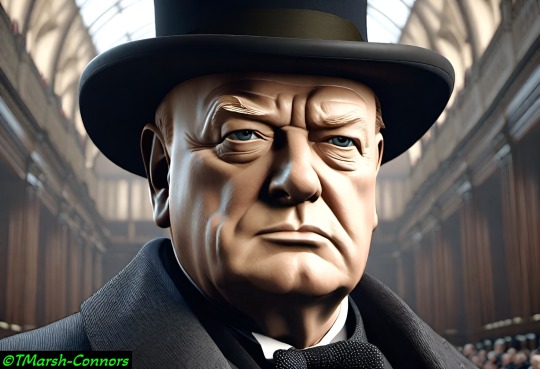


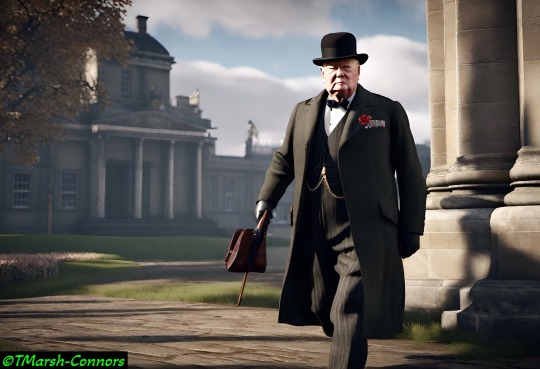
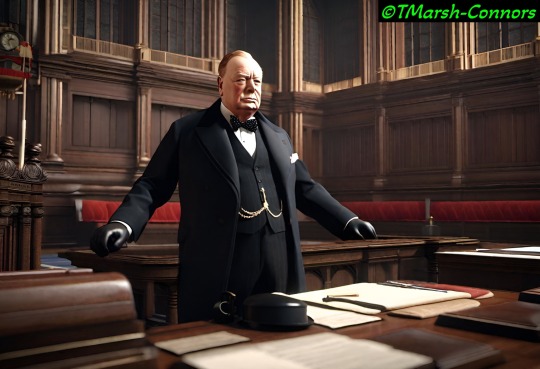
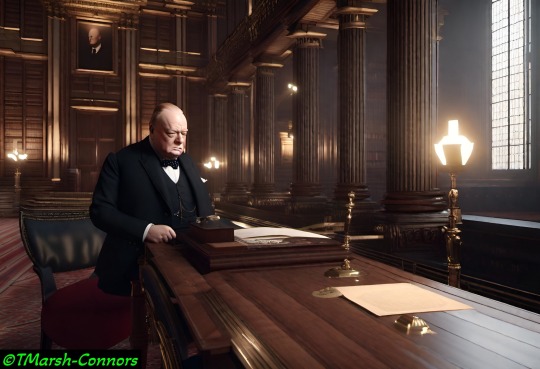
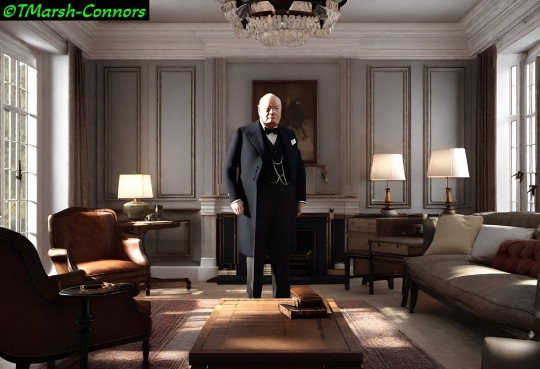

Sir Winston Leonard Spencer Churchill was a British statesman, soldier, and writer who served as Prime Minister of the United Kingdom twice, from 1940 to 1945 during the Second World War, and again from 1951 to 1955.
#British Prime Minister#World War II#Leadership#Orator#Statesman#British History#Iron Curtain#Allies#Speeches#War Strategist#Political Figure#Nobel Prize in Literature#Conservative Party#Cold War#V for Victory#Dunkirk Evacuation#Churchillian#Historical Figure#British Empire#Battle of Britain
13 notes
·
View notes
Text
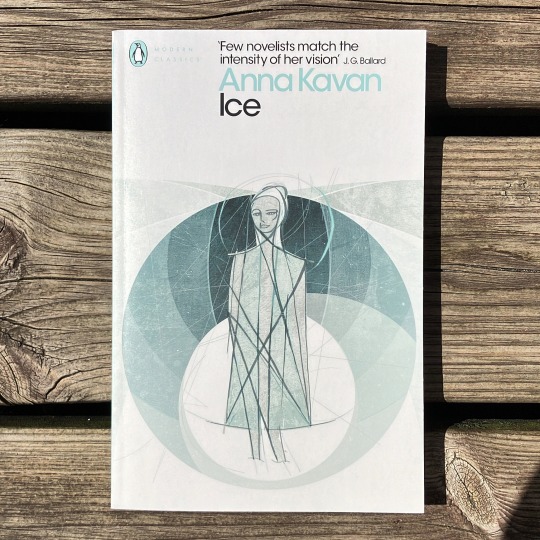
Anna Kavan: Ice (1967)
#anna kavan#penguin classics#penguin modern classics#literature#slipstream#science fiction#cold war#ice age#climate change#dystopic
4 notes
·
View notes
Note
sorry just saw your tags and had to come in your inbox and scream about how good a hypothetical stuffy smokey wood-panelled power-cut 1970s cold war spymaster au would be. you're a genius!
hi @buck1eys!!!! im definitely not the first to see the parallels between le carré and GO, but im sure there's an AU out there somewhere so for the love of god if anyone knows of a good rec please give it to me!!!✨
4 notes
·
View notes
Text
Churchill's Actions and Quotes: Are They Profitable? (Essay)
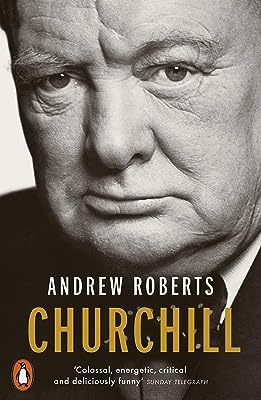
Sir Winston Churchill is famous for his victory over Hitler's Nazi Germany and the temporary world peace, but I wanted to know more about him so I did some research.
--Winston Churchill
British politician. He first joined the Conservative Party and then the Liberal Party, successively serving as Minister of Commerce and Minister of Home Affairs, Minister of the Navy and Minister of Defense during World War I, and Minister of War and Minister of Colonization after the war. He later returned to the Conservative Party and became Minister of Finance. He returned to the gold standard. He served as prime minister during World War II and contributed to the victory of the Allies. After the war, he became prime minister again. He is the author of "The Crisis of the World" and "Memories of the Second World War". He won the Nobel Prize in Literature. (1874-1965)
He was by no means an omnipotent person, and he often failed in the war. (According to the wiki, when he was a child, he was rather an inferior student. At Harrow School, he was not allowed to study foreign languages because he did poorly, and was made to study only English. It is said that it helped him to improve his English expressiveness and led to winning the Nobel Prize for Literature in later years.) On the other hand, he has a certain eye as a politician. Germany opposes the appeasement policy, saying that it will only increase the number of Nazis. This achievement is probably due to the fact that he came from a military background and was able to realistically analyze the current situation with his sharp eyes. Anticipating the Cold War, he envisioned the unity of European nations, so to speak, anticipating the EU. (I wonder how he sees the current so-called Brexit.) Churchill was the foremost anti-communist.
Here are three of Churchill's most famous quotes.
@The greatest lesson in life is to know
Even fools are right sometimes.
@I may be drunk, Miss, but in the morning I will be sober,
and you are still ugly.
@The inherent vice of capitalism is
the unequal sharing of blessings,
The inherent virtue of socialism is
the equal sharing of miseries.
The second statement would now be flagged as misogyny. I didn't say it, Churchill said it, sorry. BGM: Pomp and circumstance No. 1 (“British Second National Anthem”)
#Churchill#prime minister#WW2#Nobel Prize in Literature#rei morishita#Cold War#EU#anti-communist#Brexit#Pomp and circumstance#essay
4 notes
·
View notes
Text
Hi world. I have written a blog about the problems on Earth that we urgently need to solve. I'd love to share it with you.
😘
#new world order#equality#endtimes#climate change#climate emergency#ww3#study blog#blog#blog post#cold war#world war three#literature#artificial intelligence#future#prophecy#music
4 notes
·
View notes
Text





"The whole world is divided for me into two parts: one is she, and there is all happiness, hope, light; the other is where she is not, and there is dejection and darkness...”
War and Peace L. Tolstoy
#spring#but cold#classic literature#dark academism#light academia moodboard#classical#natureblr#books and reading#booksblr#very dark academia#art#tolstoy#war and peace#melancholy reader
4 notes
·
View notes
Text
"Distraction: Out Of The Silent Suburb" by Andrew Coombs
Few novels capture the suffocating fear of Cold War-era Britain with the same finesse as Andrew Coombs’ Distraction: Out of the Silent Suburb. A masterfully interwoven tale of espionage, existential dread, and human frailty, the novel beaks with immense tension. With a storytelling approach that blends literary depth with the breakneck pace of a thriller, Coombs delivers a thought-provoking and…
0 notes
Text
YES!!! This is why I love Cold War era sci-fi cos it’s a constant reflection on these same themes. Man has taken the place of God, a malevolent God, but refuses to accept it. So he projects that power and its burdens onto everything he creates
@mothercain that I Have No Mouth And I Must Scream reference legitimately shocked me and left me with mouth agape
#the constant fear of nuclear annihilation produced some of the greatest literature I’ve ever read#I could talk endlessly about the pseudo-religious justifications people make for military technology but I’d be going off topic#i have no mouth and i must scream#ihnmaims#harlan ellison#cold war
4K notes
·
View notes
Text
Audiobook Review: "The Berlin Letters" by Katherine Reay
Thanks for stopping by! I’m talking today about an author and novel I’ve been telling my face to face friends about even before I finished reading it: The Berlin Letters by Katherine Reay. Bestselling author Katherine Reay returns with an unforgettable tale of the Cold War and a CIA code breaker who risks everything to free her father from an East German prison. From the time she was a young…

View On WordPress
#audiobook#audiobook review#Blog Tour#Book#book review#Cold War#Harper Muse#Historical Fiction#Katherine Reay#literature#read#Reading#The Berlin Letters
0 notes
Text
From Gaza to Europe: A Young Girl's Dream is Finally Coming True!
Vetted by association (Mahmoud khalaf) here.
Before the genocidal war on Gaza, I was immersed in university life and enjoyed studying English literature at the Islamic University in Gaza (IUG), which was utterly destroyed by Isr*ael. They destroyed the place that helped me find my passion: performing on stage in English.
youtube
My family and I have been displaced multiple times and we ended up now in a tent that does not protect us from any bullets, shrapnel, or the cold and rain of winter. I had never thought I would have to live in such hellish conditions at the age of 20, an age at which I was expecting to be studying at university and enjoying the company of my friends like any other girls my age around the world!!!
youtube


Below is my letter of acceptance from Mary Immaculate College (MIC) in Ireland, the place where I am reclaiming and achieving my dreams.

Amid the pain, horrors of war and many near death experiences, luckily, I was awarded a scholarship to do a BA in English Language and Literature at Mary Immaculate College in Ireland. A glimmer of hope shone in my sky, happiness rushed strongly through my veins, and a voice within me roared: "A unique destiny awaits you, Sarah. Seize this opportunity, honor your people abroad, and use your talent to tell the world about Palestine and touch their hearts."
Read more about the scholarship here.
I am literally at a crossroads at this stage in my life. I could keep running from a place to another with my family searching for safety and wasting years of my life without education. Or, you could help me evacuate with my family to Egypt and then go to study at Mary Immaculate College in Ireland.
Please do NOT decide to look away and send my only opportunity for a good education to go with the winds. Please boost my campaign by:
donating, reblogging and sharing.

@fivetrench @nogender-onlystars @thefrogmanmpp
@a-shade-of-blue @s1x-foot-deep @inolongerknowwhatimdoing
@kordeliiius @secondary-objective-active @mavigator
@lun4rc0w @selamat-linting @dude-iloveu
@jesncin @estrellasrojas @loveaankilaq @ddeck
@time-was-over @possum-with-a-banjo @buttercuparry
@mar64ds @blossomdapple @mothfishing
@alexander-the-alright @sixty-silver-wishes
@newporters @punkitt-is-here @ethereal-night-fairy
@rainintothesea @madocactus @queen-erika-the-songful
@kathles
@fancysmudges @brokenbackmountain @mothblossoms
@aleciosun @fluoresensitive @khizuo @lesbiandardevil
@transmutationisms @schoolhater @timogsilangan @appsa
@buttercuparry @sayruq @sar-soor @akajustmerry
@annoyingloudmicrowavecultist @feluka @tortiefrancis
@flower-tea-fairies @tsaricides @riding-with-the-wild-hunt
@brutaliakhoa @raelyn-dreams @troythecatfish @theropoda
@tamarrud @4ft10tvlandfangirl @queerstudiesnatural
@northgazaupdates2 @baby-girl-aaron-dessner @nabulsi @sygol
@junglejim4322 @heritageposts @chososhairbuns @palistani
@imjustheretotrytohelp @ibtisams @vakarians-babe @90-ghost
@fairuzfan @humanvoicebox @plomegranate @queerstudiesnatural
@stil-lindigo @soon-palestine @communistchilchuck @ghost-and-a-half
@rebecca-levin-art @mangocheesecakes @transmutationisms
#Sarah from Gaza#vetted#Verified#vetted by association#mahmoud khalaf#gaza#all eyes on gaza#news on gaza#gaza fundraiser#gaza genocide#gaza strip#free gaza#gazaunderattack#free palestine#falastine ask#palestinian genocide#save palestine#i stand with palestine#all eyes on palestine#save gaza#mutual aid#!!!#rb#signal boost#Pales#Youtube
4K notes
·
View notes
Text
got a sick-ass collection of Stanislaw Lem short stories from the library (on a 50s sci fi kick rn), and I can't stop thinking about this paragraph from the foreword to the anthology:
"In too many science fiction stories, and in almost all fantasy, the invented elements of the story get elaborated into both the plot's problems and their solutions. Pursuing this recursive story-generating strategy makes the resulting stories into something like games or crossword puzzles. These are both fine pastimes, but literature is a bigger enterprise. Lenin was wrong when he said literature consisted of false solutions to real problems. Literature creates meaning, and meaning is crucial to the human project as such. Although literature creates meaning indirectly, and by symbolic means, so do all the rest of our meaning-generating systems, functioning as they do by way of representations. Literature is the most fine-grained and particular of the meaning-making systems, and is therefore crucial for humanity." - Kim Stanley Robinson
collection is The Truth and Other Stories, pub. 2021 by MIT Press
#literature#sci fi#on writing#stanislaw lem#rowan speaks#reading lem and bradbury and it's making my brain go brrrr#i know i'm writing a lot of silly fanfic right now but my novels are marinating in all this good stuff#i wrote a paper in high school on the cold war's influences on sci fi#sometimes i think about revisiting that
0 notes